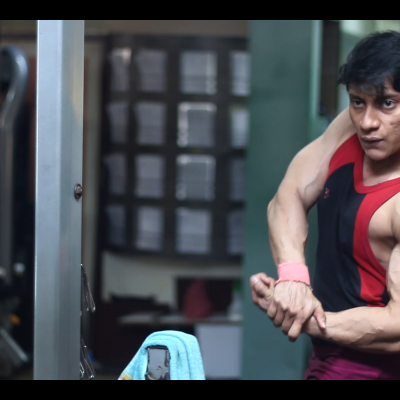Categories
Whether it is by checking harassment from fellow men, or by questioning one’s own internalisation of subtly sexist and harmful behaviour, there’s a whole range of ways to go about making a positive shift
Social norms don’t expect women to look muscular, but if men are muscular, it is considered sexy. Just by choosing to pursue a largely male-dominated sport that glorifies what is accepted as “masculine”, Karuna and Sibalika are pushing the boundaries of these labels.
This malignancy of toxic masculinity is a mutant inheritance that is hard to eradicate. However, initiating discussions about it and spreading awareness is essential to minimise the cost to its victims.
Through its vivid and raw depictions of socio-cultural life in rural Karnataka, the author, Vasudhendra, a key voice in contemporary Kannada literature, brings forth his identity in all its intersecting dimensions, through the inclusion of class, caste, religion, gender, rural-urban location, education and language.
In a patriarchal society, masculinities manifest or show-up as a very particular set of behaviours such as being controlling and dominating, often in violent ways. In fact, the root of masculinities in a patriarchal society emphasises practicing this violence and control.
Is a moustache synonymous with the socially established understanding of what makes a ‘man’, is it what marks the degree of manliness, or rather, the degree of male privilege, and is it something that defines the kind of relationships men share with each other?
There is someone in my life who had a terrible childhood, has had several liaisons and whose father married twice. He says that he hated his father. How would his father react to his son’s liaisons if he were alive? If I love a cyborg or a person of the same gender, how will my father react?
Traditional masculinity is not without its problems but to eliminate its component of stoicism is to pull the rug from under a cast of tough and determined characters who make society function.
मोहनस्वामी – लेखक वसुधेंद्र अनुवाद – रश्मि तेरदल (हार्पर पेरेनियल Harper Perennial, 2016) जब मैं छात्र जीवन में पढे गए…
In our mid-month issue, we have Mamatha Karollil writing about how she asserted herself after an incident of privacy violation when a nude picture of herself was seen by someone from work without her consent, and how ripping through, or not getting into, the cocoon of shame and dishonour, can prevent much distress…
मैं घर के बैठक वाले कमरे में दाखिल हुई तो पाया कि वहाँ एक अंजान सी खामोशी पसरी हुई थी।…
One summer afternoon some moons ago, a man at work assigned to help me move numbers on an excel sheet…
कुमाम डेविडसन एक स्वतंत्र पत्रकार, ऐक्टिविस्ट और शिक्षक हैं। वे पूर्वोत्तर भारत में क्विअर विषयों पर डिजिटल और प्रिंट सामग्री…
मेट्रो ट्रेन, दिल्ली शहर और यहाँ के जीवन का एक अभिन्न अंग बन चुकी हैं। आज मेट्रो के बिना दिल्ली…
If students of such young ages can have the agency to work around hard-wired issues of sexuality and privacy, bearing in mind consent, choice and failure as part of life, we see no reason for this sense of agency to not expand one’s sense of belonging and easily create change.














